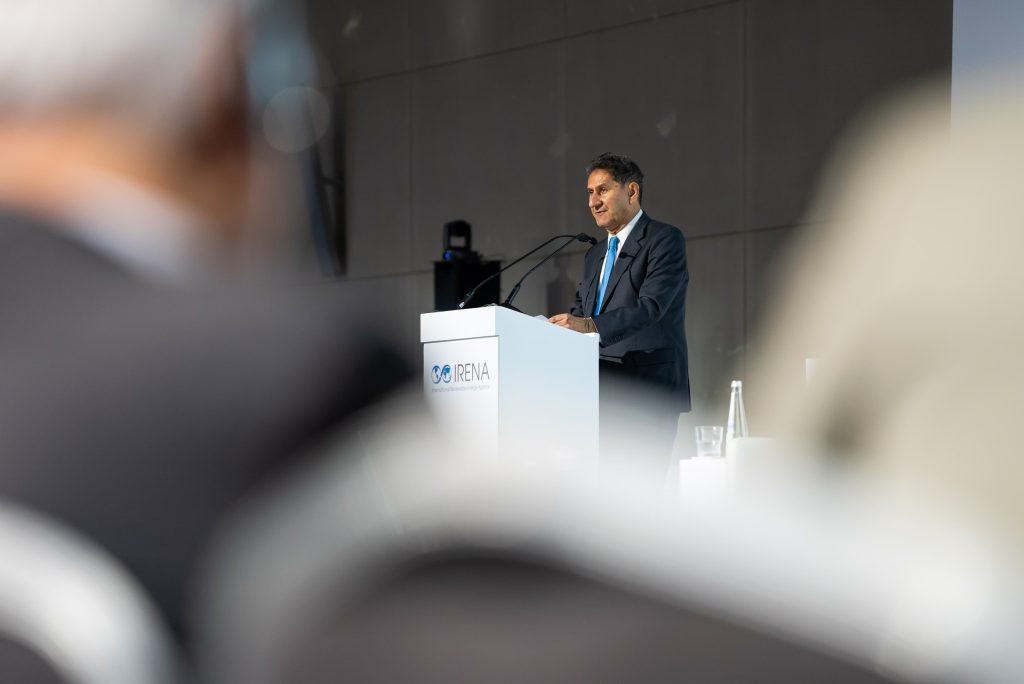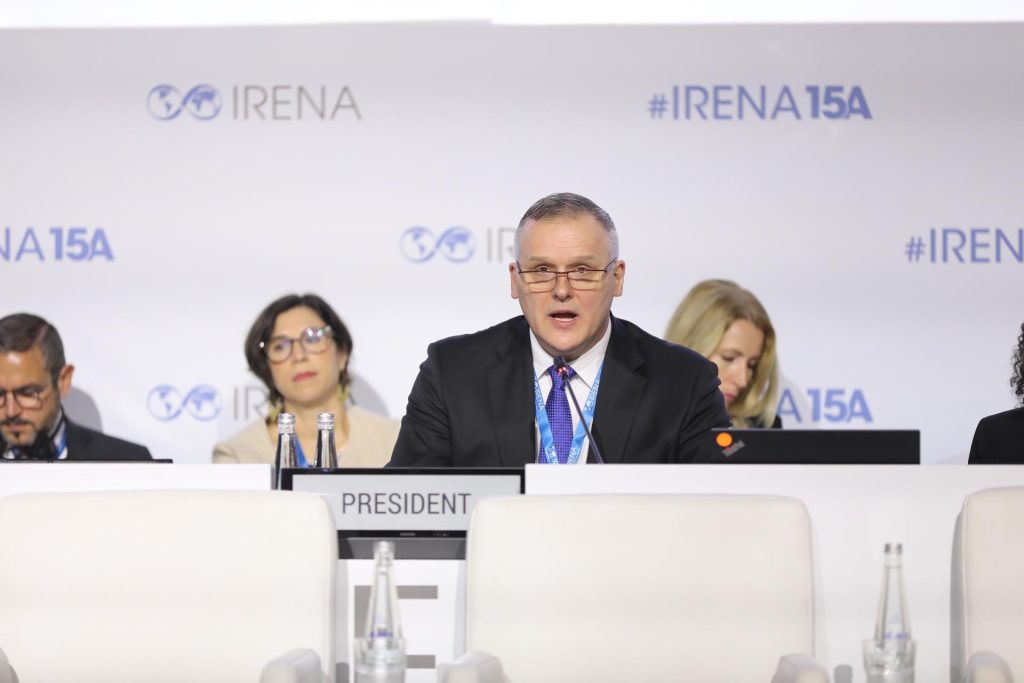Albert Oppong-Ansah
Abu Dhabi (UAE) Jan. 12, GNA-The 15th session of the International Renewable Energy Agency (IRENA) opened today with a call on countries to make conscious decisions towards including renewable energy in their generation mix.
This will help reduce emission contributing to climate crisis and ensure prosperity and sustainability.
Renewable energy is energy derived from natural sources, including sunshine, wind, geothermal and hydro, that are replenished at a higher rate than they are consumed.
“Let us use the IRENA Assembly as a platform to forge partnerships, share best practices, and advance the solutions that will shape the renewable energy systems of tomorrow and critically create resilient and prosperous societies,” Mr Francesco La Camera, IRENA Director-General, said at the opening of the session in Abu Dhabi.
Under the theme, “Accelerating the Renewable Energy Transition – The Way Forward,” the two-day meetings brought together ministers and high-level delegates from IRENA’s 139 Member States, academia, development banks, chief executives and youth, to enhance wider, cross-sectoral collaboration on the energy transition.

Over the period, key discussions would focus on tripling renewable energy capacity by 2030, enhancing ambition in Nationally Determined Contributions, supporting transitions in emerging economies, and leveraging innovative financial flows in developing countries.
Mr La Camera said renewable energy offered a path forward – a means to reduce dependence on finite resources, stabilise energy costs, and empower countries to harness their domestic resources for energy independence.
“2024 was the first year that IRENA delivered on its new mandate to monitor progress in implementing the global pledge from the United Arab Emirate consensus to triple renewables and double efficiency,” he said.
“However, despite our progress in certain areas, the world remains off track to deliver on its promise. The energy transition cannot be viewed as a mere response to a crisis but a proactive strategy to get on the 1.5-degree pathway and ensure long-term stability, equity, and sustainability in the global energy landscape”.
Mr. Bojan Kumer, the President of the 15th IRENA Assembly, said the urgency of the global missions was critical and renewable energy sources were indispensable in the journey to decarbonization and a sustainable future for all.

“Let me also emphasise that we are also at a critical time for accelerating our efforts to triple renewable energy capacity. “We understand that the principle of a just global transition is on our minds,” he said, adding that synergy was required between the deployment of renewable energy technology to address energy poverty.
Mr Kumer who is the Minister of the Environment, Climate and Energy of Slovenia, reiterated the need for countries to focus on translating the shared vision into actions.
Dr. Amna bint Abdullah Al Dahak, Minister of Climate Change and Environment, United Arab Emirates, said, “The world around us is changing, constantly and rapidly. Climate change is no longer on the way, it is knocking on the door.”
She urged countries to take steps to reduce emission using key enablers of the energy transition, including technology, financing and skills and capacities development.
“While the challenges we face are immense, so is our potential to overcome them. Together, we have the tools, the knowledge, and the determination to shape a future where renewable energy powers prosperity and sustainability for all. Let us move forward with ambition and shared purpose,” Dr Al Dahak added.
Mr António Guterres, UN Secretary General, said “We must move faster to bring the great benefits of clean power to all and to limit the rise in global temperature to 1.5 degrees Celsius”.
That, he said, required urgent action with governments charting a just transition away from fossil fuels towards clean energy in their new national climate action plans due this year.
“These must align with the 1.5-degree limit – as promised,” he said.
Mr Seth Mahu, Director of Renewable Energy at the Energy Ministry said Ghana was taking steps to increase renewable energy share and that nearly 30 percent of the country’s energy was being generated through renewable energy with plans to increase it by 10 per cent by 2030.

He said with the coming on stream of about 60 megawatts (MW) solar projects-10MW at Yendi, and 50MW at Bui Power Authority’s Generating Station this year, Ghana’s renewable energy installed capacity would increase to close to about 260 MW.
Mr Mahu noted that the total installed capacity of the mini-grid would account for approximately 4.8 percent of the total modern renewable energy (wind, solar) in the country’s energy generation mix.
“Keeping in mind the target of 10 per cent by 2030, we will be able to meet that and probably exceed it looking at the number of projects underway and those coming on stream. Our renewable energy capacity may shoot to almost about 1,000 MW or even 1,400 MW by 2030,” he said.
Mr Mahu said all the projects contributed to the ongoing global conversation on sustainability, improving health, and reducing emissions.
GNA